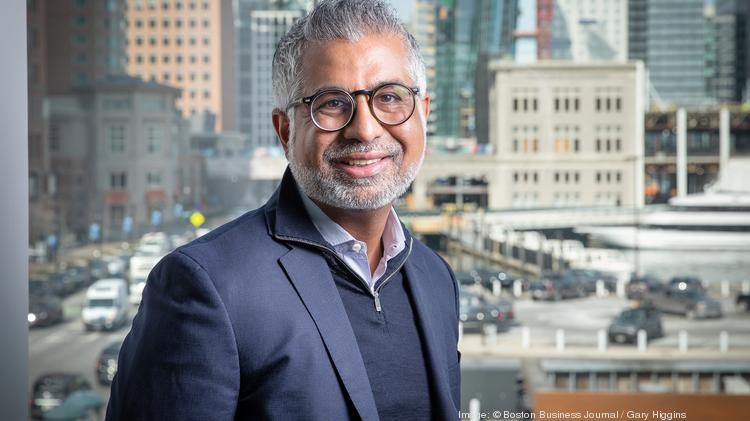The College Dropout Who Founded Two Multi-Billion Dollar Companies

As an electrical engineering student at Stamford University in the 1990s, Hari Ravichandran decided to take a risk. After seeing the success of other tech companies created in 1997, he opened BizLand, a small web-hosting company focused on small business owners, allowing them to have an online presence in the era before smartphones.
He had a part-time job at Sun Microsystems that helped build some savings. In March of that year, he put out an ad online that said, in essence, "If you need help getting online, give me a call." It took a few weeks, but eventually, his phone rang, and a local bookstore owner called to get help building a website for his business. This was his first foray into web hosting, which later proved to be quite a profitable venture.
As Hari Ravichandran would later explain, "It was like a dynamic, exciting, wonderful time to be part of the Silicon Valley culture. I really got the bug, and at that point, I thought, 'I'm going to take a leap.' I dropped out of graduate school and started my first company."
The company was so successful within a year that Ravichandran had pondered retirement. His business was successful, and he had millions of dollars in the bank. However, his retirement plans were soon dashed as the Dot Com Bubble popped in 1998, nearly driving BizLand to bankruptcy.
With two moves, the future of the company was secured. First, BizLand's web hosting platform switched to a subscription model, which guaranteed a monthly income. That money was then used to purchase other, smaller web hosts that had also been hit hard by the financial collapse.
In the wake of this new success, BizLand was renamed to The Endurance International Group. In 2011, Ravichandran sold his company to Warburg Pincus and GS Capital Partners for just under one billion dollars. When he left the organization, he could have retired again but instead chose to continue working in the tech industry.
In 2014, Ravichandran applied for a home mortgage and was shocked to learn that despite his good credit and long history of making on-time payments, he had been denied by the bank. After further research, it was revealed that hackers had stolen his identity to make fraudulent purchases.
The ordeal inspired him to create a cybersecurity company called iSubscribed, which uses AI to anticipate, counter, and prevent identity theft, as he had experienced. According to the FTC, consumers in the United States lost an estimated $5.8 billion to identity theft and fraud in 2021, a 70% increase over the previous year, which shows that consumer protection services have grown even more essential over the past few years.
AI was specifically chosen as the backbone of the new service because, as Ravichandran explains, "We need to fight fire with fire, so I believe fighting AI with AI is the only way that we can get ahead of the bad actors."
According to a 2021 valuation, iSubscribed (now known by its new name, Aura) had an estimated value of over $2.5 billion just three years after it was founded, making Ravichandran a rare entrepreneur who had managed to take two startups and turn them into billion-dollar corporations, known in tech circles as "unicorns" due to their extreme rarity.
A few months before Aura, Ravichandran created yet another enterprise called Jump Ventures, a private equity and venture capital firm that aims to provide future entrepreneurs with the resources they need to get their dream startups off the ground, just as he had managed to do with Endurance and Aura.
He is also the founder of the Ravichandran Foundation, which aims to help the less fortunate in the Boston, Massachusetts area, as well as those living in India, by providing food, books for school children, and other essentials to those who cannot afford them.
After starting three successful companies, two of which turned from small operations into billion-dollar corporations, are more business ventures on the rise from Hari Ravichandran? While no one can know the answer for now, one certain thing is that he's come a long way from being a college dropout living in California.
Subscribe to Latin Post!
Sign up for our free newsletter for the Latest coverage!















